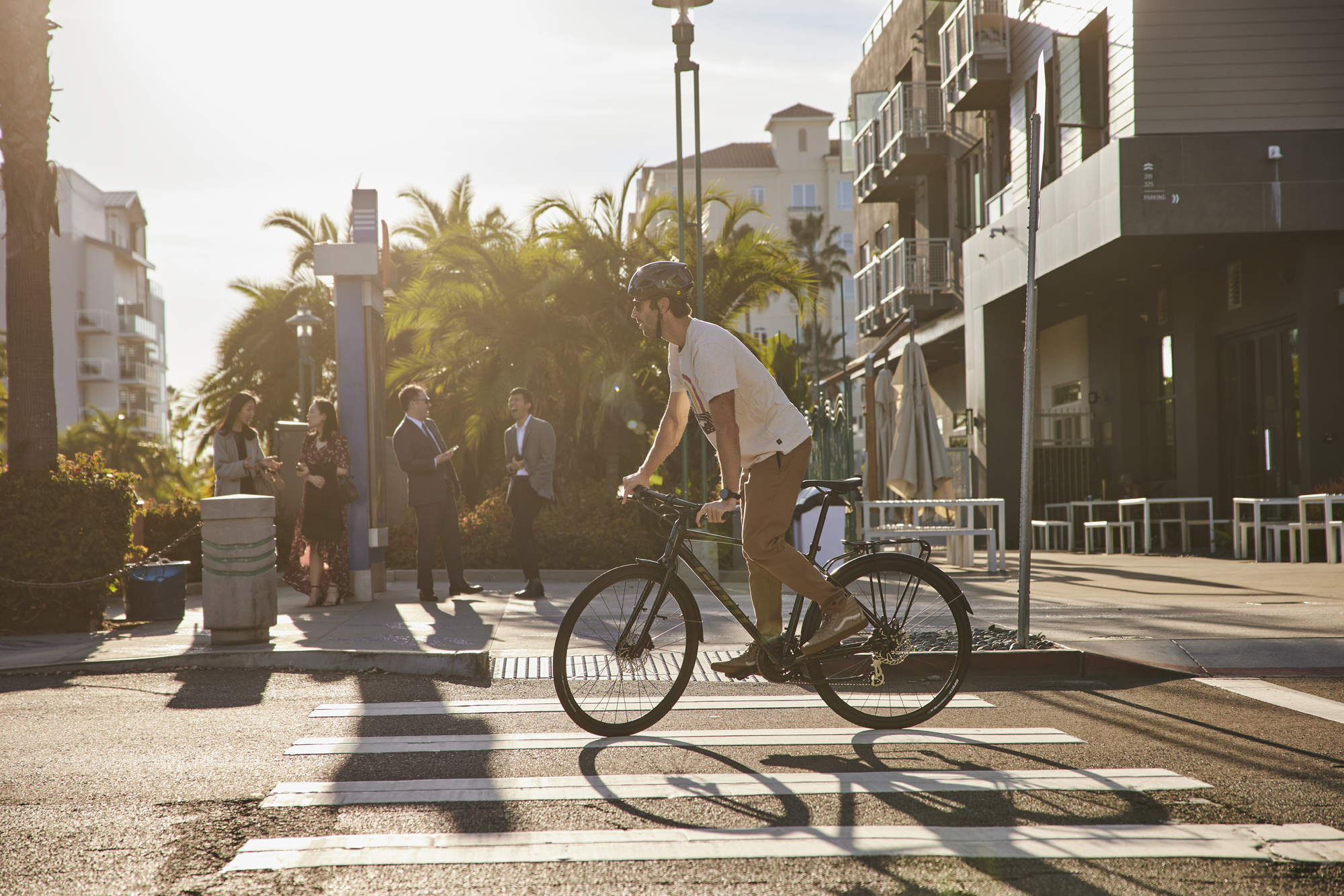Cycling to Work: A Beginner's Guide
- Posted on
- By Calvin Alexander
- Posted in bike to work, Cycle to work, Cycling, Cycling to work, Duff Cycles, how to bike to work, Start cycling to work
- 0

Cycling to work is not just a trend; it’s a smart choice for your health, wallet, and the environment. With benefits ranging from improved fitness to significant cost savings, it’s no wonder more people are hopping on their bikes each day. In this article, we’ll explore the myriad benefits of cycling to work, the essentials you need to get started, and tips on choosing the right gear. Plus, we’ll touch on guys in the know like Duff Cycles and great resources like the Cycle-to-Work scheme to make your biking adventure even better!
The Benefits of Cycling to Work
Health Benefits
Cycling offers a fantastic cardiovascular workout. Incorporating just 30 minutes of cycling into your daily routine can help reduce the risk of chronic diseases, including obesity, high blood pressure, and heart disease. Plus, it's a great way to improve your mood and lower stress levels.
Time Benefits
You might think driving is faster, but once you factor in traffic jams, parking, and other delays, cycling can often help you reach your destination quicker. Many urban areas have dedicated bike lanes that allow you to bypass heavy traffic and arrive at work fresh and energized.
Financial Benefits
Cycling can significantly cut your commuting costs. You’ll save on fuel, parking fees, and public transport expenses. Plus, the Irish Cycle-to-Work scheme allows employees to purchase bicycles and safety equipment tax-free, further enhancing your savings! Check out more about this scheme and how it can benefit you.
Getting Started with Cycling
So, how do you get started? It’s simpler than you might think! Here are a few basics to consider when embarking on your cycling journey:
1. Choose Your Route: Map out a safe route that includes bike lanes or quieter streets. This can enhance your safety and ride experience. Many countries, Ireland included, are investing heavily in cycle lanes, especially with curbs between the cyclists and the cars, making it even safer.
2. Schedule Your Commute: Start cycling a couple of days a week and gradually increase as you become more comfortable. Not being in traffic will mean that your commute time will become more consistent so you will be able to plan travel times more accurately as well. Who knows, maybe the good weather could even encourage you to take a detour home to enjoy it a bit more, which, in a car, may have been a terrible idea before.
Essential Gear and Bicycles
Choosing the right bike and gear is crucial for a successful cycling experience. Here’s what to consider:
Types of Bicycles
1. Hybrid Bikes: Perfect for commuting, they’re versatile and comfortable for both on-road and off-road cycling. These models will get you from A to B, via C and then back to A with little fuss, low maintenance and can still be fun and comfortable. Whether its an entry level hybrid or a pricier model, these guys can do it all.
2. Road Bikes: If speed is your goal, these bikes are lightweight and designed for paved roads. Many people say they are not familiar with going on the "drops", which are the lower tier of the road bike bars, but in reality hardly any commuting on these bikes ever do. The handlebars are much narrower that other types of bikes making them easier to manoeuvre in traffic and urban areas. Being on the top of the bars, or the "hoods" as they are known, allow you an ergonomically comfortable position with easy access to the breaks and gears with our shifting around. These options are often faster and more efficient by design.
3. Mountain Bikes: Great for rough terrains, but they can also be used for commuting if you’re looking for a sturdy option. Then bigger tyres will give the cycle a softer, more playful feel, but may be a bit heavier than the previous models.
Duff Cycles offers a fantastic range of bicycles tailored for different needs. Their website provides detailed information on various models, helping you choose the one that suits your commute best. once you have an idea of what type of bike you would feel most comfortable with, the guys in the shop are always happy to discuss and advise on various models that would suite your budget and your needs, so pop in and have a chat.
Safety Gear
- Helmet: Always wear a helmet to protect your head in case of an accident. Most come with an adjustable bezel at the back and are generally universally sized, with options for kids and XL adults sizes.
- Reflective Gear: Ensure you’re visible to motorists, especially in low-light conditions. Staying alive is quite the fashion statement these days, so being seen is a non-negotiable.
- Lights: Equip your bike with front and rear lights for safety during nighttime rides. I would recommend using your lights right through the year. Even though the sun sets later in summer, that flashing lights bring attention to you on the bike and keeps motorists "wider of the rider", making your commute much more pleasant.
Essential Bits
- Mudguards: Some may find these less appealing and even an eyesore, but mudguards keep you and your bike clean, especially in wetter climates such as Ireland, saving you from ruining your clothing and from the mechanical parts of your bike getting grimy and wearing sooner than they should.
- Locks: While locks would not be considered safety gear, it is an essential piece of equipment when considering the security of the bike and keeping it safe. The rule of thumb is the lock should cost around 10% of the value of your bike. This may strike you as extreme, but its a small price to pay to keep your new wheels safe.
- Pannier Racks and Bags: Carriers, as they are also knows, can generally carry up to 25kg's of weight making them an ideal cycle buddy to hold your laptop and a change of clothes, your lunch or even some shopping you stopped to pick up on the way home. Pannier bags can also range from small 12L bags to larger 30L bags, and some even turn into a back pack when it's time to lock the bike up and walk the last bit. I would recommend a waterproof bag, suitable for all weather conditions.
Regular maintenance is key to a smooth and safe ride. Here are a few maintenance tips:
- Check Tyres: Ensure they are properly inflated and have enough tread.
- Brakes: Regularly inspect your brake pads and cables.
- Chain: Keep the chain clean and lubricated to avoid wear and tear.
When it comes to larger service and replacing the important bits on the bike, services are just as important on your bike as they are on the vehicle you are trying to ditch. Service intervals depend on the mileage you do, but every 6 months is a safe bet for a check up.
In Conclusion
Cycling to work is an enjoyable, healthy, and economical mode of transport that benefits you, the environment, and your community. By participating in the Irish Cycle-to-Work scheme, you can enjoy significant savings while getting fit and reducing your carbon footprint. Check out resources like Duff Cycles to find the perfect bike for you and gear up for your new adventure!
So, why not give cycling a try? Embrace the fresh air, the exercise, and the joy of discovering your commute from a whole new angle, without the stress of traffic. Happy cycling!
- Calvin Alexander


Comments
Be the first to comment...